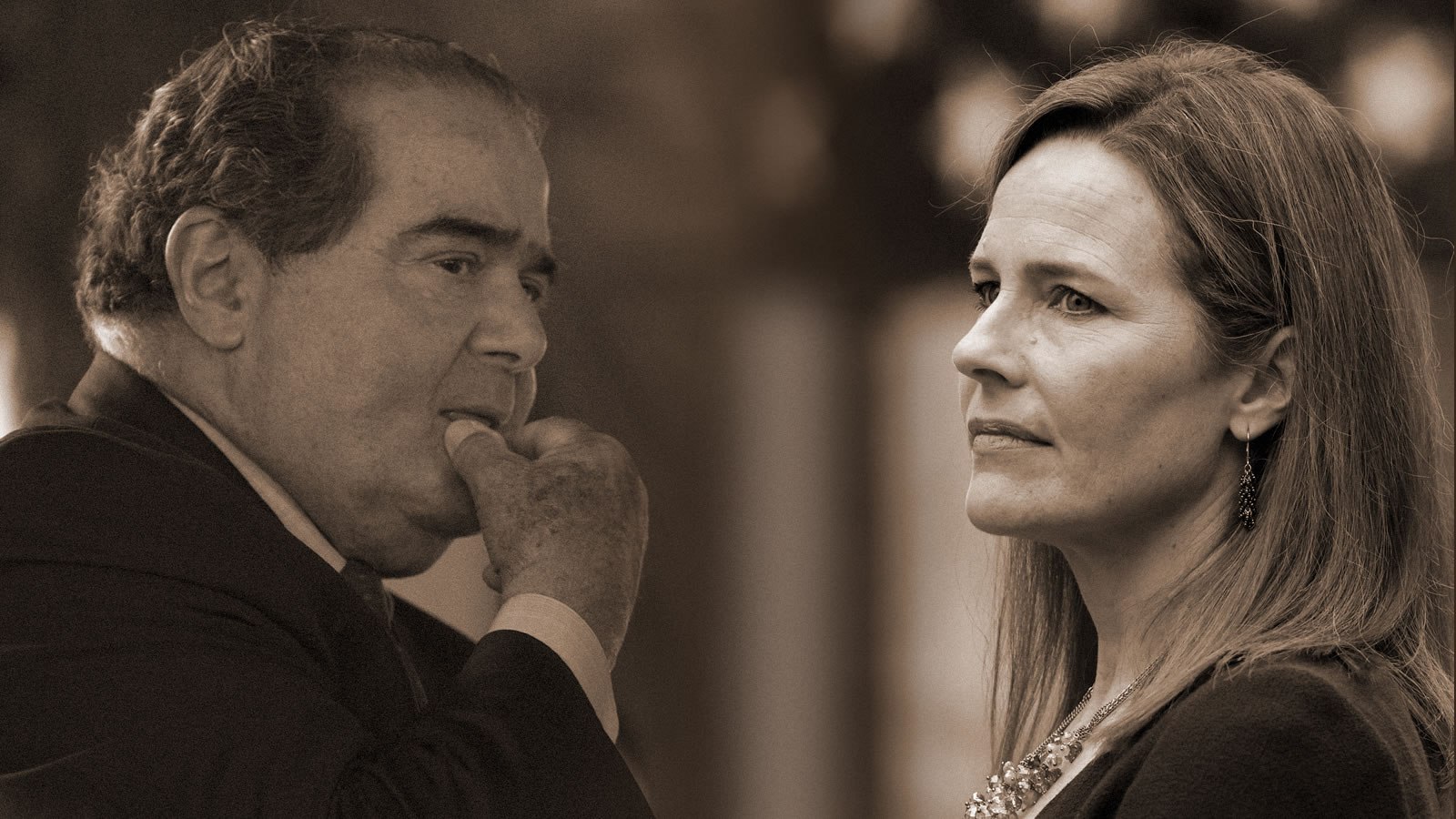Penna Dexter
President Trump promised to nominate Supreme Court justices with judicial philosophies like that of Justice Antonin Scalia. He has kept that promise, perhaps no more faithfully than in his nomination of Amy Coney Barrett.
After graduating first in her class from Notre Dame Law School, Judge Barrett held two clerkships, the second of which was for Justice Scalia. She was greatly influenced by him.
And Justice Scalia would certainly be pleased by her nomination. He wanted the Court to move away from its activist role, to interpret the law, not make it. He described his hopes for a shift in a 2012 book he wrote with Bryan Garner, Reading Law: The Interpretation of Legal Texts:
“Our legal system” they wrote, “must regain a mooring it has lost: a generally agreed-on approach to the interpretation of legal texts…we must look for meaning in the governing text (the Constitution or a law passed by an elected legislature), ascribe to that text the meaning that it has borne from its inception, and reject judicial speculation…The descent into social rancor over judicial decisions is largely traceable to nontextual means of interpretation, which erode society’s confidence in a rule of law that evidently has no agreed-on meaning.”
Judge Barrett, like Justice Scalia, rejects the view that has often characterized the courts in recent decades, that the Constitution is a living document that they can and should reinterpret in light of the times.
That view took prayer and Bible-reading out of schools. It brought us the Roe v. Wade decision on abortion. It has dismantled many of our freedoms and opened the definition of marriage to include same sex-couples.
Only last year, in the Bostock decision, the Court included gender identity in the definition of sex for employment decisions.
Of Justice Scalia, Judge Barrett said, “his judicial philosophy is mine too.” When she becomes Justice Barrett, we still won’t like every decision. But the shift will be a gamechanger.
 Listen Online
Listen Online Watch Online
Watch Online Find a Station in Your Area
Find a Station in Your Area








 Listen Now
Listen Now Watch Online
Watch Online
